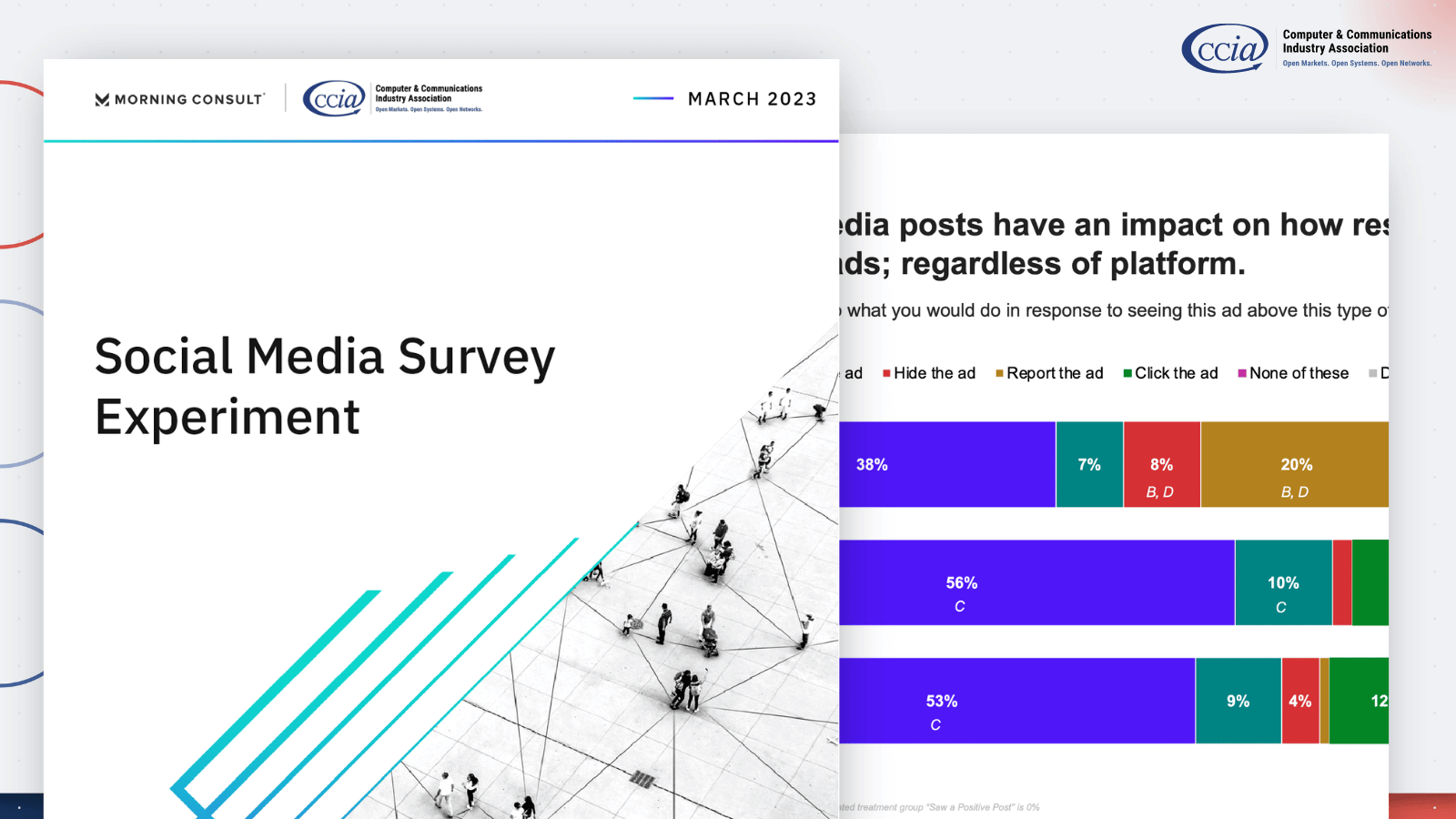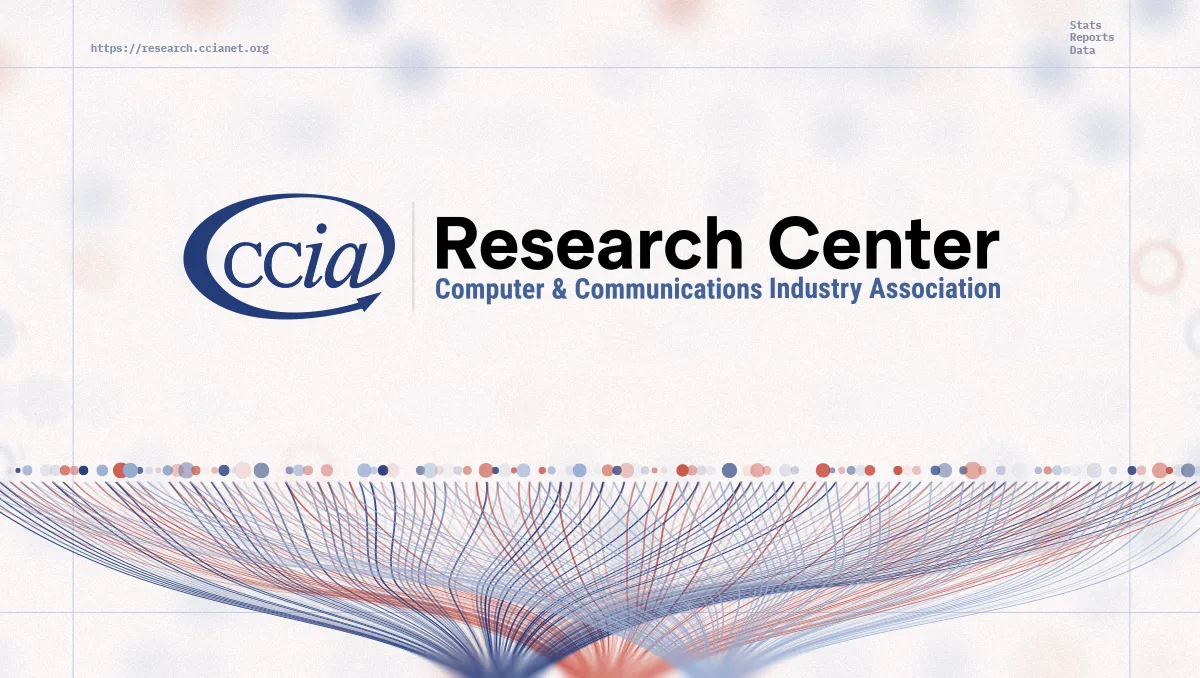New Research: Hate Speech Hurts Social Media Sites, Brands, and the Digital Economy

U.S. policymakers are increasingly considering “must-carry” laws for the internet, which would require digital intermediaries to publish all legal third-party content, some of which would be considered hate speech or objectionable by users. For example, Florida and Texas have passed laws prohibiting social media websites from deprioritizing or removing certain kinds of content, including hate speech. Although both of these laws are on hold pending a Supreme Court decision on whether to hear the cases, many policymakers are still considering introducing “must-carry” policies across social media sites and apps.
Hate speech is currently prohibited by many social media services as a violation of community standards, and appears at a low frequency on most leading services thanks to companies’ content moderation practices. However, if must-carry policies are imposed on social media services, that could change. The CCIA Research Center evaluated the potential impacts of must-carry policies in a recent research study analyzing the results of two independently-administered survey experiments facilitated by Morning Consult and NERA Economic Consulting.
The survey experiments examined how user-generated hate speech posted on social media would impact social media users’ opinions of social media websites and apps, and the brands that advertise on them. Survey respondents were shown simulated negative, positive, and neutral posts on Facebook, Instagram, and Twitter in February and March 2023. The text-and-image posts were shown adjacent to advertisements from an oral care brand, a car manufacturer, and a home improvement retailer, to replicate the feel of scrolling through social media feeds.
The research found that hate speech on social media is associated with a decline in consumer sentiment toward the social media site or app. It also found that a substantial share of respondents said that hate speech made them like the social media sites less, which was consistent across Facebook, Instagram, and Twitter.
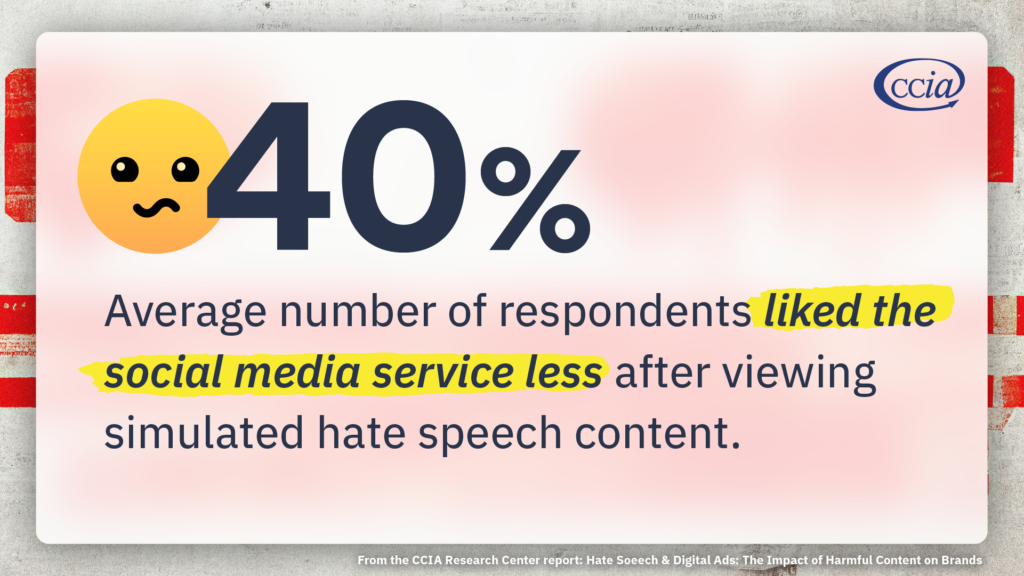
Additionally, the survey found that hate speech posts have negative implications for the brands that advertise on social media sites and apps. Some survey respondents indicated that the hate speech post made them like the advertisers less, and decreased favorable opinions of the brand. The survey also found that there was a large change in net favorability, meaning that sentiment toward advertisers shifted from favorable to neutral after respondents viewed hate speech posts next to advertisements.
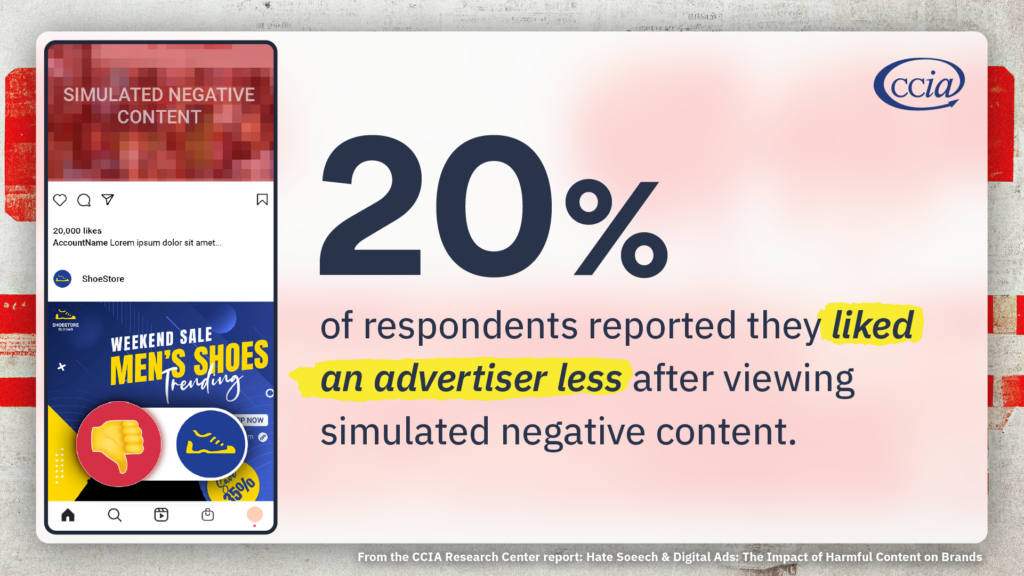
The respondents also indicated that when viewing a hate speech post next to an advertisement, respondents reported a lower likelihood of clicking the advertisement or purchasing the advertised brand that appeared directly next to the hate speech post, compared to respondents who saw a positive or neutral social media post.
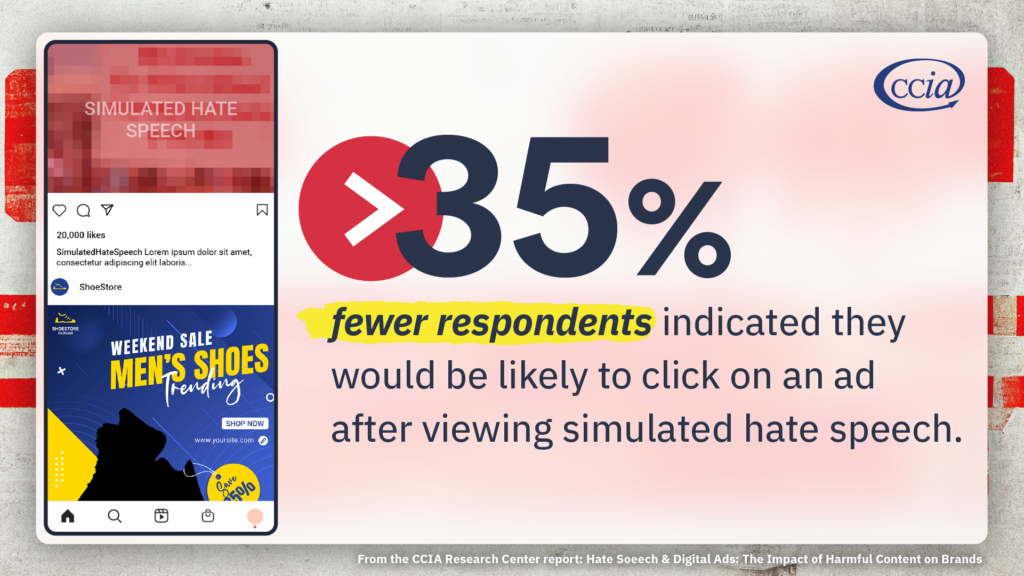
Overall, these results indicate that for social media sites and apps, publishing hate speech can have serious implications: it can damage consumers’ sentiment toward digital intermediaries, as well as decrease the consumer sentiment toward brands whose advertisements appear next to hate speech on social media sites and apps; it can also reduce consumer engagement with nearby advertisements. If hate speech became significantly more common on social media feeds, it is likely that the overall value of advertisements on social media services could decline. These findings disprove a common misperception asserted by policymakers and social media users: ‘All engagement is good engagement.’ The evidence shows this is false. Social media sites have a rational incentive to moderate and/or remove unsafe and harmful content that appears on their site, including hate speech, because not all engagement adds value. In fact, hate speech has negative value for social media sites.
The research results suggest that must-carry policies could impose significant economic costs on social media services, their advertisers, and the two-sided markets that underpin much of the digital economy. Requiring social media services to both publish and not deprioritize third-party hate speech compels speech from social media services that actively harms their business and forces them to expose large numbers of users to hate speech on their feeds.
While further research is necessary to quantify the impact hate speech has on brand perceptions on other social media websites, particularly the impact hate speech in video content has on consumer sentiment and brand perception, policymakers should not adopt must-carry laws similar to those being challenged from Florida and Texas. Implementing such laws would damage consumer sentiment toward digital intermediaries and risk harming the brands that advertise on these platforms, ultimately wrecking the digital advertising economy.

